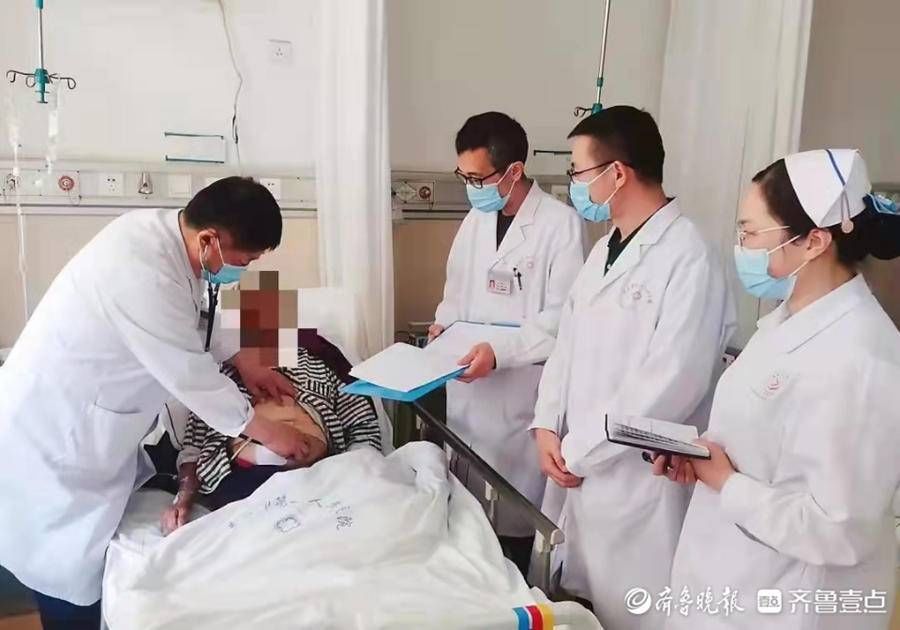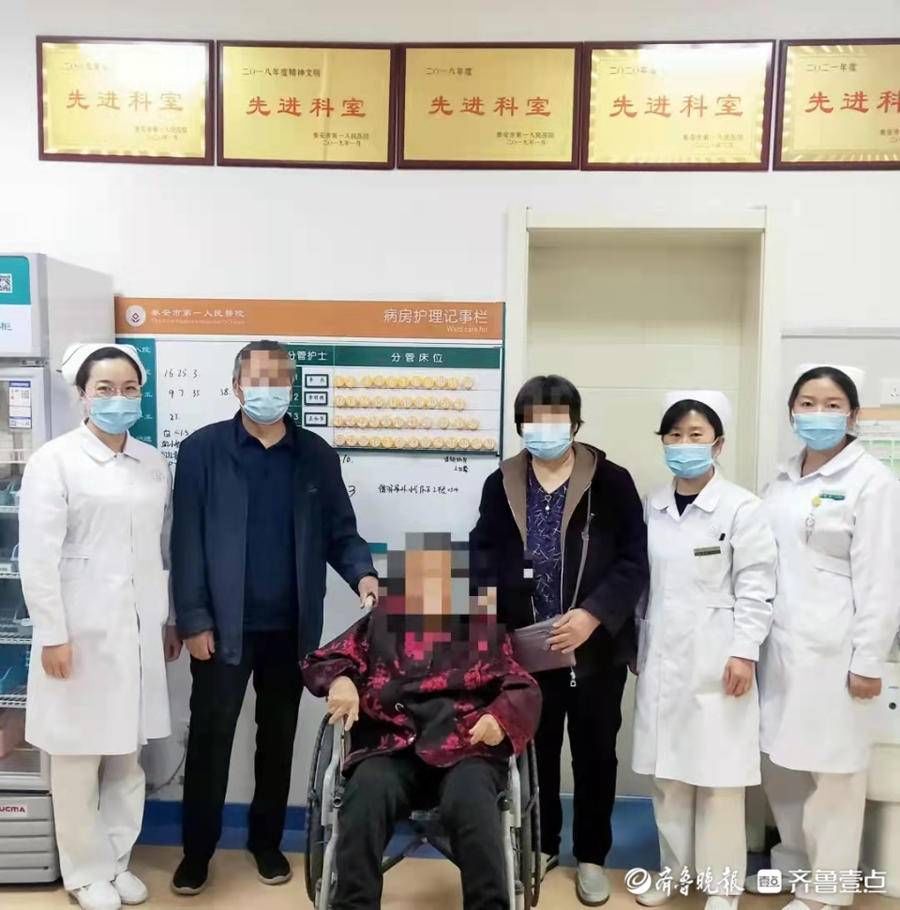Correspondent Zhang Miaoxian
Recently, the team from the First Department of General Surgery of the First People’s Hospital of Tai’an successfully performed operations on two nearly centenarians.
Ma Feng (pseudonym), an old man who was born in 1926, is 96 years old this year and is usually healthy. Six days before admission, the old man suddenly developed abdominal pain and symptoms of nausea and vomiting. Wang Jinhua, deputy chief physician of the First Department of General Surgery, conducted a physical examination of the elderly and found that the cause of the patient’s intestinal obstruction was incarcerated left inguinal hernia, but the patient was 96 years old. If surgery is performed, the risk is very high, but if the surgery is not performed, once the intestinal tube is incarcerated Necrosis can also be life-threatening. The family members of the old man sighed, “It is not easy for an old man to live to be nearly 100 years old, and it is not easy for the old man to suffer such pain in his next year. We are also concerned and anxious.” After the director Sun Xiaoguo learned about the patient’s condition, he immediately organized a multidisciplinary consultation to evaluate the feasibility of the operation. After the discussion, Director Sun explained the condition and the next treatment plan to the family of the old man Ma Feng. Director Sun explained that most people think that hernia can be solved by conservative treatment, but the special feature of inguinal hernia is that it can only be eradicated by surgery. Thus life-threatening, it is recommended to actively take surgical treatment.

In order to restore the elderly to health as soon as possible, the patient’s family agreed to undergo surgery. Three physicians, Wang Jinhua, Zhang Ming, and Ma Huaizhen completed the operation. During the operation, it was confirmed that the left femoral hernia was incarcerated in the small intestine. Fortunately, the incarcerated intestine did not appear ischemic necrosis. She was discharged from the hospital one week after the operation.

94-year-old patient Chen Fenglian (pseudonym) came to the doctor with pain in the right upper quadrant and nausea for half a month. After a detailed understanding of the patient’s condition and a comprehensive systematic examination, the First Department of General Surgery diagnosed the patient with common bile duct stones, cholecystolithiasis and acute cholecystitis. The best way is to perform surgery.
Considering the patient’s advanced age and underlying diseases such as coronary heart disease, hypertension, emphysema, etc., Sun Xiaoguo’s team invited the department of cardiology, respiratory medicine, surgical anesthesia and other departments to consult the patient , conducted a comprehensive assessment of the organ function and surgical risk. To ensure that general anesthesia does not miss the slightest, and try to control the operation time, it cannot exceed the tolerance range of the elderly. “Age is not a reason to hinder the operation. As long as the family members have confidence, we still have a great opportunity to perform surgery for the elderly to relieve the pain.” Sun Xiaoguo’s remarks rekindled hope for the elderly and their families.
Finally, the patient underwent cholecystectomy + choledocholithotomy + T-tube drainage under general anesthesia, and the operation was very smooth. On the second day after the operation, the old man was able to get out of bed and said happily, “Except for a little pain in the incision, there is no discomfort!” After careful treatment, nursing and rehabilitation after the operation, the old man has recovered well and was discharged from the hospital.
It is worth mentioning that during the operation of the patient, the anesthesiologist should always stay by the patient’s side to ensure oxygen supply, maintain the stability of the cardiovascular system, ensure the stability of the patient’s vital signs, etc., and be ready to deal with special circumstances at any time. . Whether it is preoperative, intraoperative, or postoperative, anesthesiologists are required to escort the whole process. The Department of Surgical Anesthesiology of the First People’s Hospital of Tai’an City not only provides reliable guarantee for difficult operations, but also has extended anesthesia medical technology to the fields of rescue of critically ill patients, painless childbirth, painless endoscopy, pain treatment and other fields. Improve the level of precise anesthesia and ensure the smooth completion of various high-risk and high-risk operations.